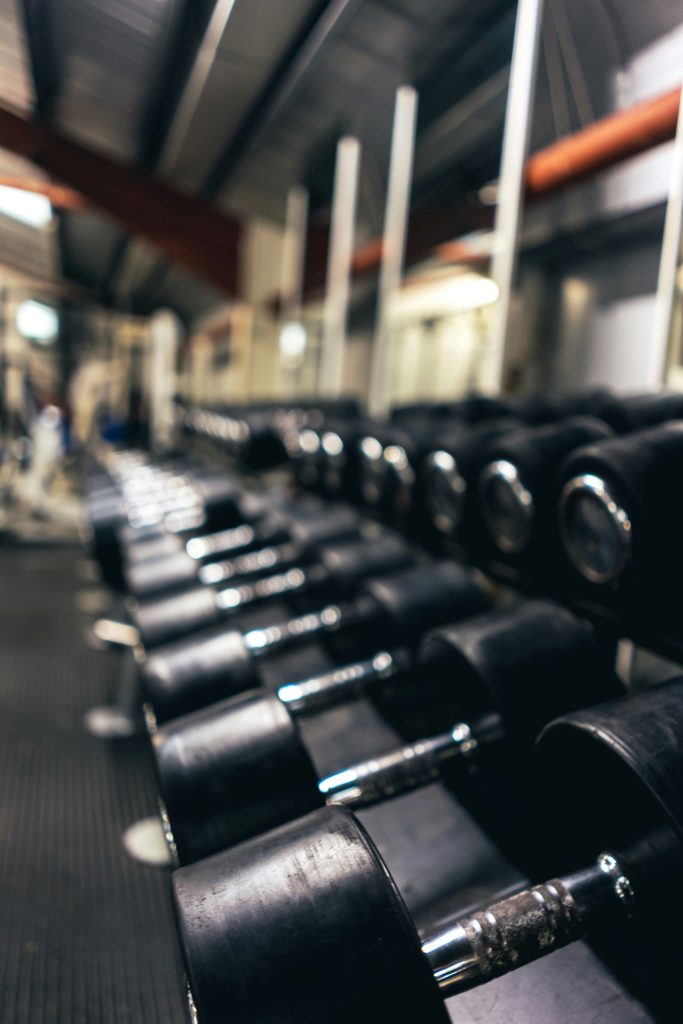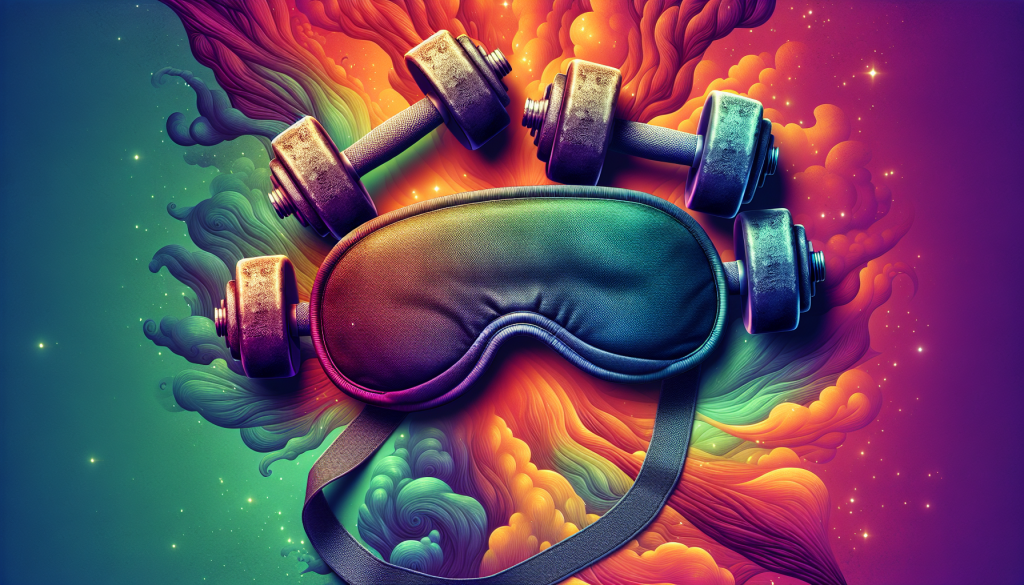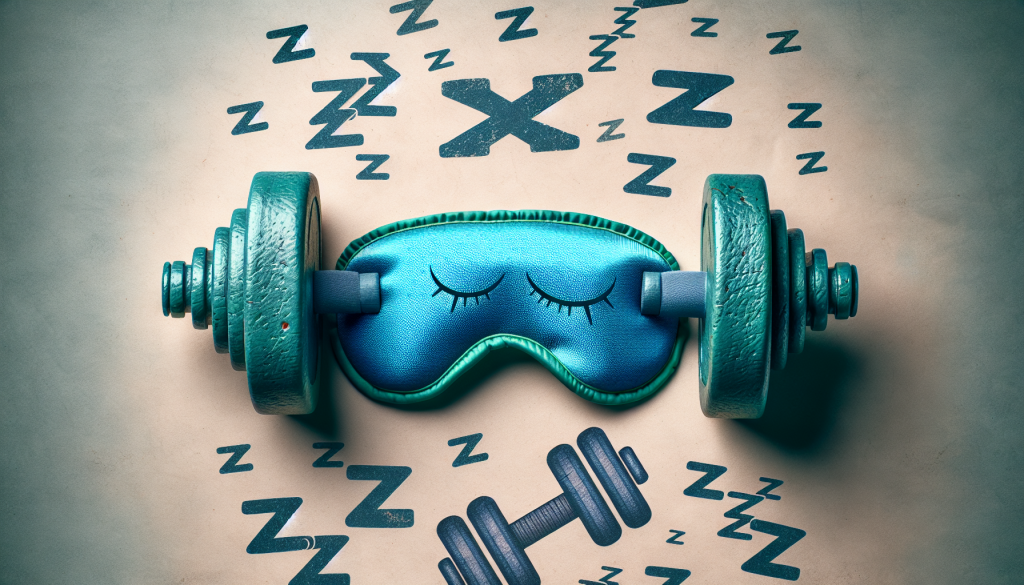If you’ve ever wondered about the secret to achieving a ripped body with six-pack abs and strong core muscles, one often overlooked factor may hold the key: sleep. Yes, that nightly ritual of rest and rejuvenation has a crucial role in helping you achieve your fitness goals. You may be surprised to learn just how integral sleep is in shaping the body of your dreams. In this article, we will explore the connection between sleep and building a ripped physique, answering the frequently asked question: what role does sleep play in getting a ripped body? Prepare to uncover the surprising impact of sleep on your fitness journey.
The Importance of Sleep for Muscle Recovery and Growth
The Impact of Sleep on Muscle Protein Synthesis
Getting an adequate amount of quality sleep is crucial for anyone who is serious about building muscle and achieving their fitness goals. Sleep plays a significant role in muscle protein synthesis, which is the process by which the body repairs and builds new muscle tissue. During sleep, your body releases growth hormone and increases protein synthesis, allowing the muscles to recover and grow. Without enough sleep, this process is disrupted, leading to slower muscle recovery and potentially hindering muscle growth.
The Role of Sleep in Hormone Regulation
Another reason why sleep is so important for muscle recovery and growth is its influence on hormone regulation. Sleep deprivation can negatively affect hormone levels, particularly those related to muscle growth and recovery. Testosterone, a hormone crucial for muscle development, is primarily released during sleep. Lack of quality sleep can lead to lower testosterone levels, which can impair muscle repair and growth. On the other hand, getting enough sleep ensures optimal hormone regulation, providing the ideal environment for muscle recovery and development.
The Importance of Deep Sleep for Muscular Repair
Deep sleep plays a vital role in muscular repair. During this stage of sleep, the body enters a state of physical restoration, where the muscles are repaired and rejuvenated. Increased blood flow to the muscles occurs during deep sleep, delivering important nutrients and oxygen to aid in repair and recovery. Without sufficient deep sleep, muscle repair can be compromised, leading to decreased performance and slower muscle growth. Therefore, prioritizing deep sleep is essential for maximizing muscular repair and optimizing fitness results.
The Effect of Sleep on Muscle Glycogen Restoration
Muscle glycogen, a form of stored carbohydrates in the muscles, serves as a crucial energy source during physical activity. Sleep plays a significant role in the restoration of muscle glycogen levels, especially following intense workouts. During sleep, the body replenishes its glycogen stores, ensuring that adequate fuel is available for the muscles during subsequent workouts. Insufficient sleep can result in incomplete glycogen restoration, leading to reduced energy levels, decreased performance, and hindered muscle growth. By prioritizing quality sleep, you can support optimal muscle glycogen restoration and enhance your fitness results.

The Connection Between Sleep and Fat Loss
The Impact of Sleep Deprivation on Appetite and Food Cravings
Getting enough sleep is not just essential for muscle recovery and growth; it also plays a significant role in weight management and fat loss. Sleep deprivation can disrupt the balance of hormones that regulate hunger and satiety, leading to increased appetite and cravings for high-calorie foods. When you’re sleep-deprived, the hormone ghrelin, which stimulates hunger, increases, while leptin, the hormone that signals fullness, decreases. This hormonal imbalance can make it challenging to resist unhealthy food choices and can ultimately hinder your fat loss goals.
The Influence of Sleep on Metabolism and Energy Expenditure
Sleep has a direct impact on metabolism and energy expenditure. Inadequate sleep can lower your metabolic rate, causing your body to burn fewer calories at rest. Additionally, lack of sleep can decrease your energy levels, making it more challenging to engage in physical activity and burn calories through exercise. Poor sleep quality and insufficient sleep duration can disrupt the delicate balance of energy regulation, impeding weight management and fat loss efforts. Prioritizing sleep and ensuring optimal sleep duration can help support a healthy metabolism and sustain energy levels for physical activity.

Sleep Quality and its Impact on Muscle Building
The Significance of Adequate Sleep Duration
To maximize muscle building and achieve optimal fitness results, it’s crucial to prioritize adequate sleep duration. The recommended sleep duration for adults is typically between seven to nine hours per night. However, individual sleep needs may vary. Insufficient sleep duration can hinder muscle recovery and growth, as the body doesn’t have enough time to complete the necessary repair processes. By consistently getting enough sleep, you provide your body with the time it needs to repair and build muscle, enhancing your overall fitness progress.
The Role of Sleep Hygiene in Muscle Recovery
Sleep hygiene refers to the practices and habits that contribute to healthy sleep. It plays a crucial role in muscle recovery and overall sleep quality. Good sleep hygiene includes habits such as establishing a consistent sleep schedule, creating a sleep-friendly environment, and implementing relaxation techniques before bed. Consistency in sleep schedule promotes a regular sleep-wake cycle, allowing for better sleep quality and efficiency. A sleep-friendly environment includes factors such as a dark, quiet, and cool bedroom, free from distractions. Relaxation techniques, such as deep breathing or meditation, can help calm the mind and prepare the body for a restful night’s sleep. By prioritizing sleep hygiene, you can optimize your muscle recovery and ensure quality sleep for improved fitness results.
The Impact of Sleep Disorders on Fitness Goals
Sleep disorders, such as insomnia or sleep apnea, can significantly impact your fitness goals. These disorders can disrupt sleep quality and overall sleep duration, compromising muscle recovery and growth. Insomnia, characterized by difficulty falling asleep or staying asleep, can lead to insufficient rest and hinder muscle repair processes. Sleep apnea, a condition where breathing repeatedly stops and starts during sleep, can cause fragmented sleep and lower oxygen levels, negatively affecting muscle recovery. It is essential to identify and address any underlying sleep disorders to optimize your sleep and support your fitness goals.

Strategies to Improve Sleep for Optimal Fitness Results
Establishing a Consistent Sleep Schedule
One of the most effective strategies to improve sleep quality and optimize fitness results is to establish a consistent sleep schedule. Going to bed and waking up at the same time every day helps regulate your body’s internal clock, promoting better sleep quality and efficiency. Aim for a schedule that allows for the recommended seven to nine hours of sleep per night, adjusting it based on your individual sleep needs. By prioritizing a consistent sleep schedule, you can enhance your muscle recovery and maximize your fitness progress.
Creating a Sleep-Friendly Environment
Creating a sleep-friendly environment is another essential strategy to improve sleep quality for optimal fitness results. Ensure your bedroom is dark, quiet, and cool, as these conditions promote better sleep. Use blackout curtains or an eye mask to block out any external light, invest in earplugs or a white noise machine to minimize noise disturbances. Additionally, maintain a cool room temperature, as a slightly cooler environment is generally more conducive to quality sleep. By optimizing your sleep environment, you can create the ideal conditions for muscle recovery and growth.
Implementing Relaxation Techniques to Enhance Sleep Quality
To enhance sleep quality and support your fitness goals, consider implementing relaxation techniques before bed. Engaging in activities such as deep breathing exercises, progressive muscle relaxation, or meditation can help calm the mind and promote relaxation. Avoid stimulating activities or screens close to bedtime, as they can interfere with sleep onset. Instead, opt for activities that promote relaxation and create a peaceful mindset before sleep. By incorporating relaxation techniques into your bedtime routine, you can enhance sleep quality and optimize your muscle recovery.

Additional Factors Affecting Sleep and Fitness Goals
The Influence of Training Intensity and Timing on Sleep
Training intensity and timing can significantly impact sleep quality and ultimately affect fitness goals. Intense or late-evening workouts can elevate adrenaline levels and increase alertness, making it difficult to wind down and fall asleep. It’s generally recommended to avoid vigorous exercise close to bedtime and give yourself time to cool down before sleep. Additionally, regular exercise has been shown to improve sleep quality overall, as it promotes overall health and relaxation. Finding the right balance and timing for exercise can help optimize sleep and support your muscle recovery goals.
The Impact of Nutrition on Sleep Patterns and Muscle Recovery
Nutrition also plays a crucial role in sleep patterns and muscle recovery. A balanced diet that includes adequate protein, carbohydrates, and healthy fats can promote better sleep quality and aid in muscle repair. Consuming a meal or snack that includes protein before bed can provide essential amino acids for overnight muscle recovery. However, it’s essential to avoid heavy meals close to bedtime, as they can cause discomfort and disrupt sleep. Additionally, be mindful of your caffeine and alcohol intake, as these substances can interfere with sleep quality and hinder muscle recovery. Prioritizing a balanced diet and mindful eating habits can contribute to better sleep and improved muscle development.
The Role of Stress and Mental Health on Sleep Quality
Stress and mental health have a significant impact on sleep quality and ultimately affect your fitness goals. High levels of stress can lead to increased anxiety and difficulty falling asleep or staying asleep. Incorporating stress management techniques into your daily routine, such as mindfulness, journaling, or seeking support through therapy or counseling, can help reduce stress levels and promote better sleep. Additionally, addressing and managing any underlying mental health issues, such as depression or anxiety, can contribute to improved sleep quality and overall well-being. By prioritizing stress management and mental health, you can optimize your sleep and support your fitness journey.
In conclusion, adequate and quality sleep plays a crucial role in muscle recovery, growth, and overall fitness results. Sleep impacts muscle protein synthesis, hormone regulation, muscle glycogen restoration, appetite regulation, and energy expenditure. Prioritizing sleep duration, implementing sleep hygiene practices, and addressing sleep disorders are essential for optimizing muscle recovery and achieving fitness goals. Strategies such as establishing a consistent sleep schedule, creating a sleep-friendly environment, and implementing relaxation techniques can improve sleep quality. Other factors including training intensity and timing, nutrition, stress management, and mental health also influence sleep and overall fitness progress. By recognizing the importance of sleep and implementing strategies to improve sleep quality, you can maximize your muscle building potential, support fat loss efforts, and enhance overall fitness results. So prioritize your sleep, and watch your fitness goals become a reality.






